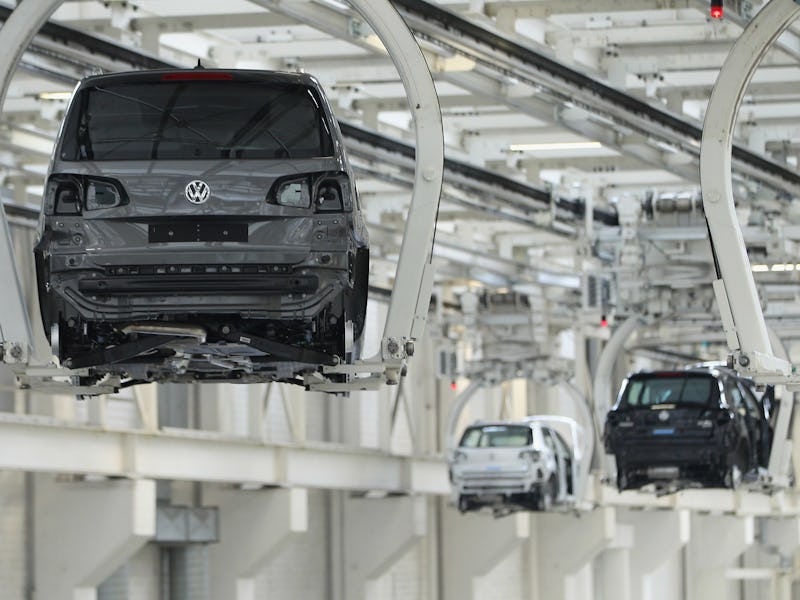Automation Denialism Continues to Thrive
Americans have an uncanny ability to ignore the inevitable.

Donald Trump’s climate change denialism is no more at odds with the educated consensus than is his quiet denial of job automation, one of the most critical economic issues of the next few years. Although, to hear many Americans talk about it, one wouldn’t think it such a critical issue at all. In fact, most Americans aren’t worried about it at all.
A White House report from early 2016 predicted an 83 percent likelihood that workers making $20 per hour will lose their jobs to robots. For those making twice that, $40 an hour, the chance is 31 percent. Considering the amount of time devoted by President-elect Trump to concerns that China takes American jobs, his silence on automation feels like a willful avoidance of the issue. And ignoring automation is, for the moment, the American way.
In the service industry, McDonald’s recently rolled out self-service kiosks in many of its locations, but was careful to say that they do not actually put the jobs of human cashiers at risk. Even if that is true for the moment, it’s difficult to see how it will remain the case going forward, especially once the convenience and reliability of these kiosks has been fully explored.
For how much longer will a human hand us our food?
A similar poo-pooing of concerns is taking place in the shipping industry, where, according to The Guardian, 3.5 million truckers stand to be replaced by self-driving vehicles. For the industry and consumers (not to mention those of us who get chronically nervous when driving next to an eighteen wheeler), this is a good thing. But for truck drivers who may get left out in the cold without proper job retraining programs, this could prove disastrous. The Guardian writes that “the trucking industry plays down the threat of disruption, arguing that people will still be needed behind the wheel for complex manoeuvres and oversight. ‘You are not going to see a truck without a driver in it for a long time,’ says Ted Scott from the American Trucking Associations.” An industry that play down threats of job loss isn’t well poised to help its employees when those losses begin. It is likely to enrage its workers all the more when its claims prove false.
Above all else, President-elect Trump is arguably the worst offender when it comes to automation denialism. He couched his campaign rhetoric in promises to keep jobs in America or return them if they’ve already been sent away. He makes no mention of plans to help people deal with job automation even as he nominates a labor secretary who has expressed significant openness to that very process, making it all the more likely Trump’s administration will be tacitly, if not openly, supportive of automating the economy. It will be support that comes at the expense of his own constituency, and they seem to be perfectly fine with that, for now.
And Trump’s administration is by no means alone in its disposition. A number of business leaders and economists have moved to embrace the automation revolution even as they acknowledge that certain jobs of today might not exist tomorrow. The salve for this, they claim, will come in the form of new jobs created by the process. Some of these jobs, they say, have yet to even be conceived.
It’s unclear whether or not those jobs that don’t exist yet will actually manifest. What is clear is that those jobs will almost certainly require new skills. If people who are displaced by automation are to step into these positions, they will require job retraining. But as long as Republicans control the government, the feds don’t appear likely to emerge as champions of job retraining programs any time soon.
To those that admit that automation is coming, it’s not a bad thing. In some instances, it can be a cost-effective investment and safer option. Additionally, it brings a unique set of challenges that must be addressed in order to secure the future of millions of American workers. Denying reality isn’t going to help anyone.